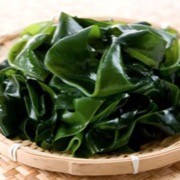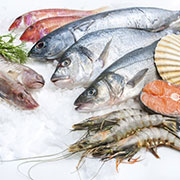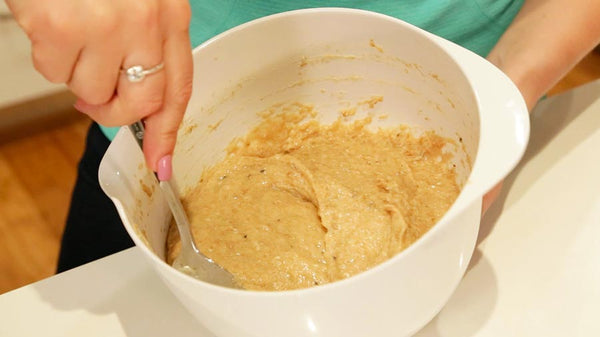We live in the lucky country here in Australia. Our standard of living is high and for the most part, we have access to some of the best foods in the world. From our world renowned dairy industry, to our top quality meat, amazing fruits and vegetables, and lastly (but not least) our great wines.
Most Australians have access to all the fruits, vegetables, meat, dairy, seeds and grains required to have a diet rich in all the Vitamins and Minerals required for healthy body and brain function, however due to a number of dietary factors, many people are missing out on one or more essential vitamins or minerals.
For the large part, if you eat a well balanced diet consisting of a wide range of fresh foods, you are unlikely to have a vitamin or mineral deficiency. If you have a restricted diet, due to food intolerances, allergies, or self imposed restrictions then it is possible you might be deficient in one of the vitamin or minerals below.
Important message: If you suspect you have a deficiency, please talk to your doctor. Deficiencies generally cannot be self diagnosed and some deficiencies cannot be remedied through dietary changes alone. Lastly, this article is not a replacement for professional medical advice.
Now that we have that clear, let’s get into the list…
Iodine
Iodine is important in the body for hormone development. Iodine works with the thyroid gland to regulate many of your body's metabolic processes like growth and energy use. A deficiency of Iodine in your diet can lead to an enlarged thyroid gland.
In Australia, in October of 2009, the Food Standards Australia New Zealand (FSANZ) mandatory iodine fortification regulation came into effect. This regulation
mandates that all bread sold in Australia contains Iodised salt. This was introduced to help address the re-emergence of iodine deficiency found in the majority of the population.
How to get more Iodine in your diet:
The easiest change you can make is simply to start buying Iodised salt instead of regular salt. Although it comes from the ocean, sea salt is not a good source of iodine.
 Iodised Salt
Iodised Salt |
 Seaweed
Seaweed |
 Seafood
Seafood |
Cyanocobalamin (aka: Vitamin B12)
Vitamin B12 assists the body to produce and preserve the myelin sheath which protects and surrounds the nerve cells. It also helps with production of red blood cells, and breaking down of some fatty and amino acids to produce energy. Vitamin B12 is friends with Folate – both require each together to work properly.
Vitamin B12 deficiency is most often found in vegans (including their breastfed babies) and the elderly. This is because Vitamin B12 is only found in foods from animal sources.
How to get more Vitamin B12 in your diet:
Eat more animal products.
 Meat, specifically Liver
Meat, specifically Liver |
 Dairy (Milk, Cheese)
Dairy (Milk, Cheese) |
 Eggs
Eggs |
Zinc
Zinc is a nutrient wich is found throughout the body’s cells. It helps the immune system to fight off invading bacteria and viruses. Zinc is also
used by the body in the process of making proteins and even your DNA. During your early development, zinc is used at a higher rate to grow and develop properly.
Zinc is even used in your body to give you an accurate and proper sense of taste and smell!
How to get more Zinc in your diet:
 Oysters
Oysters |
 Red Meat
Red Meat |
 Crab and Lobster
Crab and Lobster |
Omega-3
This fatty acid plays a vital role in your brain function. Omega-3 is also showing early signs of having an anti-inflammatory effect in the body, which would lower the risk of many chronic diseases.
How to get more Omega-3 in your diet:
The easiest way to increase the amount of Omega-3 in your diet is to increase the amount of oily fish you eat (Salmon, Mackerel, etc).
 Oily fish, specifically Salmon
Oily fish, specifically Salmon |
 Chicken, beef or free-range eggs
Chicken, beef or free-range eggs |
 Soy, linseed, walnuts
Soy, linseed, walnuts |
Calcium
You probably remember as a child, your mother insisting that you drink milk everyday to make you grow up big and strong. We’ll she’ll be please to know she wasn’t wrong! Calcium is essential for strong bones and good strong teeth. Calcium deficiency can lead to disorders like osteoporosis, which is more prevalent in the elderly.
Fun fact: About 2% of your weight is made up of calcium! That means if you weigh 70kgs, you have 1.4kg of Calcium in your body! You still need to include it in your diet though, you don’t want your bones or teeth degrading!
How to get more Calcium in your diet:
Listen to your mother! The best way to up your calcium intake it through dairy foods like Milk, Yoghurt and Cheese. If you happen to be lactose intolerant, Soy Milk and Rice Milk are also a good source of calcium.
 Diary (Milk, Yoghurt, Cheese)
Diary (Milk, Yoghurt, Cheese) |
 Canned Salmon
Canned Salmon |
 Leafy Green Vegetables
Leafy Green Vegetables |
Potassium
Potassium is used by the body to help your kidneys, heart and other organs work properly. Short term potassium deficiency is often cause by food poisoning or excessive sweating, or in the long term by eating disorders or kidney disease.
Potassium also helps the body to build muscles, and convert your food into energy. It’s especially important for those of us either trying to lose body fat, or gain muscle.
How to get more Potassium in your diet:
The best natural sources of Potassium are:
 Bananas
Bananas |
 Whole Grains
Whole Grains |
 Milk
Milk |
Folate (Folic Acid)
This is especially important for women, and even more so before and during pregnancy which is why so many prenatal vitamins provide such a big dose. Folate deficiencies in childbearing women can lead to development issues such as neural tube defects in unborn children.
Even if you’re not trying for kids, or maybe you’re male, folate is still an important thing to have in your diet. It helps with the producing the right amount of red blood cells. If you’re low in folate, your red blood cells will be abnormally large in size, and won’t last as long as they should, which can lead to anaemia.
How to get more Folate in your diet:
The word folate comes from the latin word folium which means ‘leaf’, so lots of leafy vegetables are usually a good source of folate. Other foods high in folate are:
 Broccoli
Broccoli |
 Asparagus
Asparagus |
 Chickpeas
Chickpeas |
Magnesium
This element, as well as emitting incredibly bright light when lit on fire (thanks high school science), is also really important for your body. It’s used by the body to facilitate good bone health and energy production.
If you’re otherwise quite healthy, it’s reasonably unlikely you have a severe magnesium deficiency. A sever magnesium deficiency is most commonly caused by certain medications, particular health conditions, or over consumption of alcohol.
Although severe deficiencies are rare, it is quite common in Australia to be consuming less than the RDI. A 2001 analysis of the 1995 National Nutritional Survey found that 47.7% of males and 55.5% of females were consuming less than the RDI.
How to get more Magnesium in your diet:
 Pumpkin Seeds
Pumpkin Seeds |
 Sunflower Seeds
Sunflower Seeds |
 Tofu
Tofu |
Vitamin C (Ascorbic Acid)
The most well known and well promoted vitamin. Although possible, severe vitamin c deficiencies are rare in developed countries like Australia. More often, slight deficiencies can occur from general under nutrition.
Vitamin C is important for your body, helping to produce collagen, carnitine, hormones and amino acids. It’s essential for your body to heal wounds and recover from burns. It’s also an antioxidant and supports your immune system.
If you’re iron deficient, it’s important to get enough vitamin c as it helps your body to absorb the iron.
How to get more Vitamin C in your diet:
Not just oranges, although oranges are high in vitamin C, they’re by-far not the best source available.
 Papaya
Papaya |
 Capsicums
Capsicums |
 Broccoli
Broccoli |
Iron
This is the most common nutritional deficiency in Australians. More so in children and women of childbearing age. Iron deficiencies can lead to a serious condition called anaemia, where your body slows or stops production of red blood cells.
Your body can store Iron for a little while so it’s unlikely to have a short term deficiency, with deficiencies mostly occurring over time due to a lack of prevalence in your diet.
Iron is an incredibly important mineral to include in your diet. It helps to form haemoglobin which carries the oxygen from your lungs all around your body. If it’s struggling, it means your muscles and brain are deprived of oxygen which leads to feeling fatigued and also a decreased immune system.
How to get more Iron in your diet:
 Liver
Liver |
 Pumpkin Seeds
Pumpkin Seeds |
 Oysters
Oysters |
So there you go. Now you know what foods you should be including in your diet.
Did you know Which Vegetables have the Lowest Carbs?
Or which vegetables have the most protein?
Sources:
http://www.betterhealth.vic.gov.au/bhcv2/bhcarticles.nsf/pages/iodine_explained
https://ods.od.nih.gov/factsheets/Zinc-Consumer/
http://www.betterhealth.vic.gov.au/bhcv2/bhcarticles.nsf/pages/Calcium?open
http://www.everydayhealth.com/health-report/guide-to-essential-nutrients/common-nutrient-deficiencies.aspx
http://www.weightloss.com.au/diet/diet-articles/potassium-and-weight-loss.html
http://www.everydayhealth.com/health-report/guide-to-essential-nutrients/common-nutrient-deficiencies.aspx
https://thinkgp.com.au/sites/default/files/Magnesium%20overview%20and%20summary.pdf
http://www.bodyandsoul.com.au/nutrition/nutrition+tips/magnesium+is+an+important+part+of+your+diet,9841
http://www.healthaliciousness.com/articles/food-sources-of-iron.php
http://www.gesa.org.au/consumer.asp?id=84
http://www.msdmanuals.com/professional/nutritional-disorders/vitamin-deficiency-dependency-and-toxicity/vitamin-c
http://www.whfoods.com/genpage.php/genpage.php?tname=nutrient&dbid=109

 Iodised Salt
Iodised Salt Seaweed
Seaweed Seafood
Seafood Meat, specifically Liver
Meat, specifically Liver Dairy (Milk, Cheese)
Dairy (Milk, Cheese) Eggs
Eggs Oysters
Oysters Red Meat
Red Meat Crab and Lobster
Crab and Lobster Oily fish, specifically Salmon
Oily fish, specifically Salmon Chicken, beef or free-range eggs
Chicken, beef or free-range eggs Soy, linseed, walnuts
Soy, linseed, walnuts Diary (Milk, Yoghurt, Cheese)
Diary (Milk, Yoghurt, Cheese) Canned Salmon
Canned Salmon Leafy Green Vegetables
Leafy Green Vegetables Bananas
Bananas Whole Grains
Whole Grains Milk
Milk Broccoli
Broccoli Asparagus
Asparagus Chickpeas
Chickpeas Pumpkin Seeds
Pumpkin Seeds Sunflower Seeds
Sunflower Seeds Tofu
Tofu Papaya
Papaya Capsicums
Capsicums Broccoli
Broccoli Liver
Liver Pumpkin Seeds
Pumpkin Seeds Oysters
Oysters

